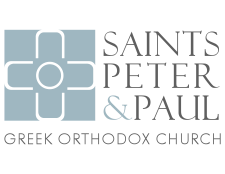Pregnancy
One of the greatest gifts God has given us is to become co-creators with Him. When a husband and wife are ready and God wills, the fruit of their love brings forth life—another human being—a baby. From the moment of conception we honor this life with caring and nurturance. In addition to physical and emotional support, the couple and the baby need spiritual support primarily through prayer. Please inform the priest of your pregnancy so he may include you and your unborn child in the preparation prayers (Proskomide) before the Divine Liturgy. Pregnant women are encouraged to attend the liturgical services and to receive the sacraments.
Some couples may have difficulty becoming pregnant. Several therapies exist to assist pregnancy. However, not all are in accordance with Orthodox Christian ethical teaching. Please consult your priest for guidance and special prayers for conceiving a child. Birth control is generally accepted among the Orthodox except when it aborts a fetus after conception such as “the pill.”
Birth
By God’s grace, soon the time will come for your baby to be born. Amongst all the excitement, remember to call the priest when the baby is born. He can come and visit you in the hospital or at home to offer special prayers for the mother and child. In the event of a miscarriage, the priest can visit you for counseling and offer special prayers for healing.
Naming
One of the beautiful traditions lost in antiquity is the naming of the child on the eighth day after birth. This practice was based on the Jewish rite that Jesus Himself experienced with His parents (as recorded in Luke 2:21). Recently, priests and parents have resurrected this prayer service. For convenience, it can be done with birthing prayers or at another time. Much care and thought should go into naming your child. Giving him/her the name of a saint is a noble tradition. This connects them to a spiritual patron who will pray for them and also provides a concrete example of the Christian life. Some families name children after grandparents. Some will not name their child until baptism. Others have the godparents name the child. Although these are also noble, there is no basis for these practices in the church canons. Some children are given a family name and a saint’s name. This is perfectly acceptable.
40 Day Churching
On the fortieth day after birth, the mother and child are invited to the church temple for a prayer service to reunite the mother and unite the child to the faith community. This practice is also based on the ancient Jewish rite and experienced by Jesus and His mother, Mary (recorded in Luke 2:22-40). Ages ago it took nearly six weeks for a mother to recover from giving birth. This time was also spent bonding with the newborn child. Mother and child did not travel outside the home until both were strong enough. The first place they went was to the temple/church. Today, a mother can recover much more quickly. If she is able, she is encouraged to attend church services but should refrain from receiving Holy Communion until after the 40 Day Churching. This 10 minute service should be scheduled ahead of time on either a Sunday or weekday near the 40th day. Please consult your priest for further details.
Adoption
Whether or not parents are able to conceive children of their own, adoption is an acceptable and noble practice for Orthodox Christians. There is a service of adoption for parents and children which can be prayed privately or publically depending the family’s wishes.
Miscarriage or Stillbirth
In the unfortunate event of miscarriage, much grief and emotion can result for parents especially the mother of the child. The priest can be called to provide spiritual comfort and to read a special prayer for the parents and the deceased child. Great care should be taken, if possible, to inter the remains of the child. The mother is still encouraged to come to the temple for the 40 Day Churching so she may be prayerfully reunited with the community of faith.
Crisis Pregnancy
A child is a gift of God to a husband and wife and should be received with great care and thankfulness. Unmarried men and women should not fornicate (sexual foreplay and intercourse) as it is clearly condemned in Mosaic Law and the letters of St. Paul. However, if a woman becomes pregnant unexpectedly, at this time, both the father and the mother must take responsibility for the nurturance and care of their child. Abortion, the deliberate and willful actions taken to end the life of a baby in the womb of the mother, is sinful and wrong. The Orthodox Church has always condemned this practice. If circumstances exist that make carrying the baby to term difficult, the priest and numerous agencies are ready to help the mother.
